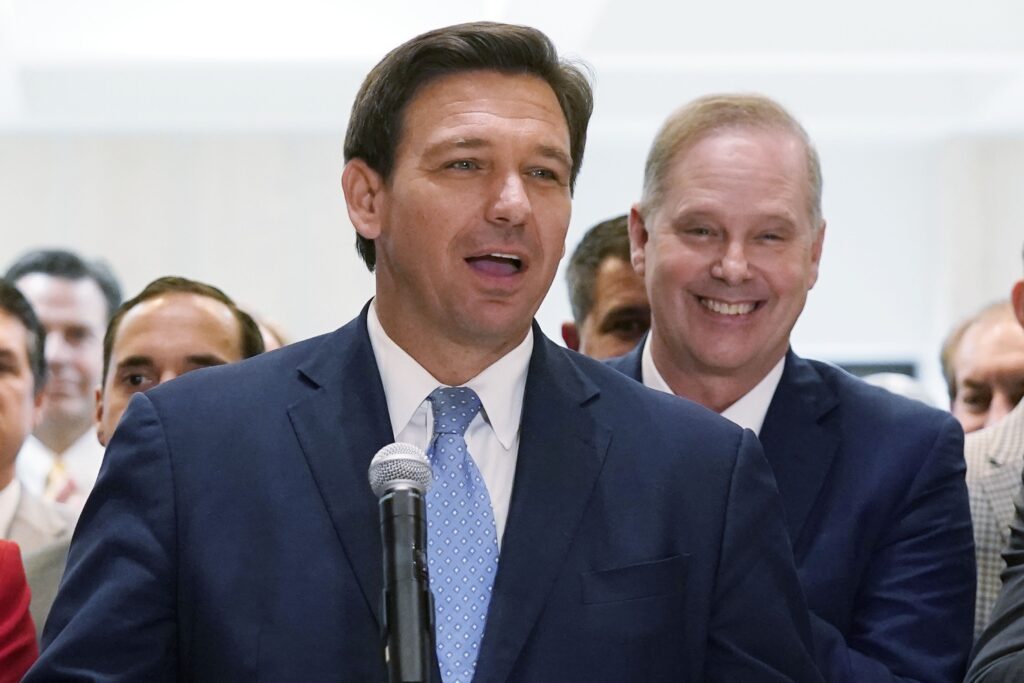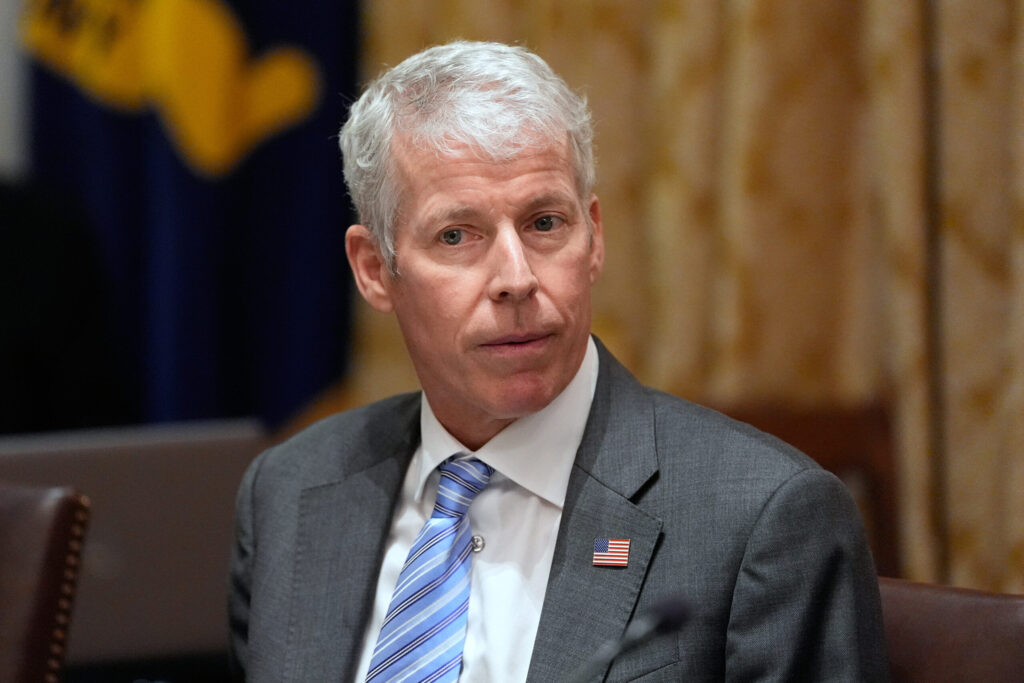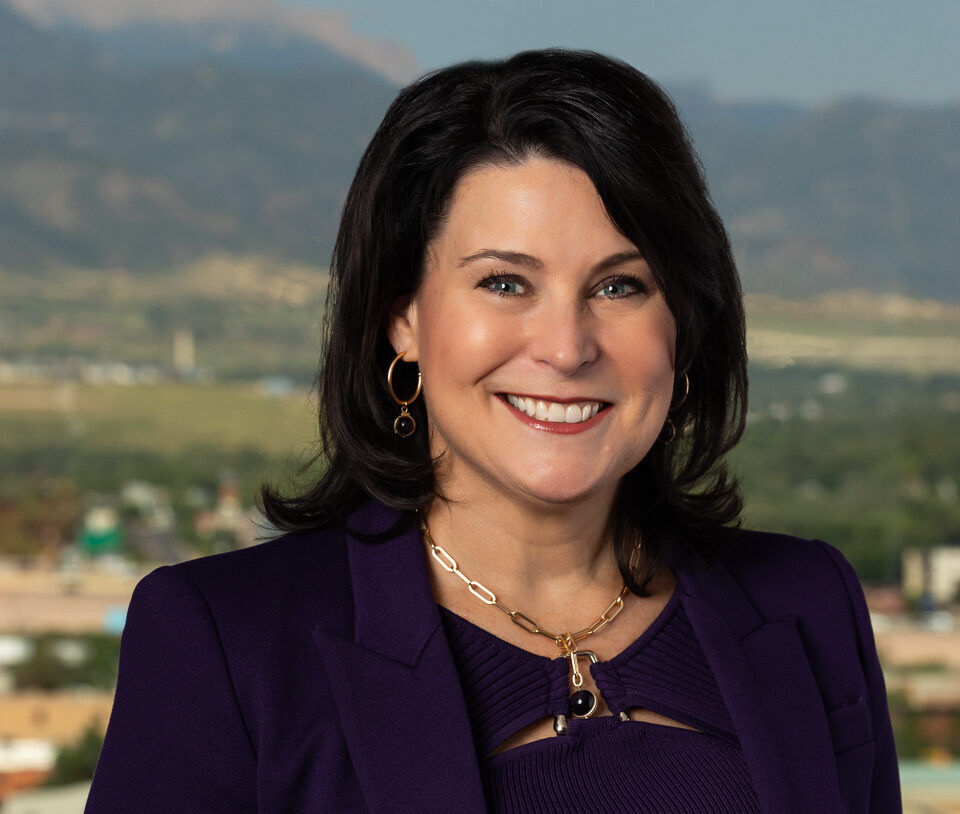Polis, lawmakers, others strike deal expected to reduce property taxes by $1.3 billion in first year
With three days left in the 2024 session and under the threat of at least one ballot measure, Gov. Jared Polis, lawmakers, nonprofits and business leaders announced a deal on property tax legislation that would reduce the assessment rates for commercial property and valuations for homeowners.
In its first year, the deal is expected to cut taxes by $1.3 billion, which proponents described as the largest property tax reduction in 20 years.
The announcement signaled a massive win for the Polis administration, given the bipartisan sponsorship from some of the best minds in the legislature on property taxes, notably Republican lawmakers who have served as a county commissioner or assessor before joining the legislature.
The bipartisan mood was unmistakable. Polis and the group of lawmakers who joined the announcement were all smiles when they spoke about the marathon effort to come up with a property tax bill before the session adjourns on Wednesday.
The prime sponsors of the compromise legislation in Senate Bill 233 are Reps. Chris deGruy Kennedy, D-Lakewood and Lisa Frizell, R-Castle Rock, and Sens. Barbara Kirkmeyer, R-Weld County, and Chris Hansen, D-Denver, whose draft property tax bill got a thumbs down from the state’s property tax commission just 10 days ago.
The parties described days of negotiations between the Polis administration, Colorado Concern, the Colorado Chamber of Commerce, the Bell Policy Center, Colorado Counties, Inc., lawmakers and others.
Part of those negotiations included finding a Republican co-sponsor. They got four.
Polis said the discussion is primarily about the legislature making decisions that affect over 4,000 different funding districts. He lauded the work of the property tax commission, which included deGruy Kennedy, Hansen, and Frizell, with the final work done by lawmakers.
Frizell told Colorado Politics that the negotiations in the last few days were tense. However, she cited big wins, including a faster reduction in the assessment rate for commercial properties. She added that residential property tax owners will finally see relief.
Under Senate Bill 233, commercial property tax assessment rates will be reduced from 29% to 25% over a two-year period. For homeowners, property valuations will decrease from 6.8% to 6.7%, with a 10% reduction in home value used for these valuations. This primarily applies to homes valued at $700,000 or less.
Senate President Steve Feinberg said the solution is complicated, but that it is a state policy that affects local governments.
“We needed to thread that needle and find the right path forward. I think at times, over the last several years, and definitely over the last several months and hours, we didn’t think we were going to get there,” he said.
Fenberg commended Hansen, who the Senate leader described as the optimist who believed there was a path forward when no one else did, and Kirkmeyer. Fenberg said the Republican senator, when she wants to solve a problem, will find a way.
Fenberg and Polis also commended the property tax commission, comprised of county commissioners, business owners, representatives of low-income Coloradans, and lawmakers. Fenberg said the group put politics aside and analyzed potential solutions.
“That’s what it means to be a leader and a public servant,” Fenberg said.
The bill isn’t perfect, Fenberg said.
“But I will say that we found a path forward that I think is sustainable. And that is something that everybody can say that’s a reasonable approach,” he said.
“The commitment to bipartisanship in solving this problem has never been greater,” added House Speaker Julie McCluskie, D-Dillon. “It is that kind of spirit that I believe has always been in our house but could not be more visible and clear to the public than it is in this measure.”
Republican leader: Proposal sets politics aside
Pugliese said the legislation puts politics aside and prioritizes people, which is a big reason she, Pelton, and Frizell ran for the legislature.
While last November’s special session disappointed Republicans, Pugliese said she was excited by the conversations that followed. Everyone was at the table, she said.
Property taxes have stymied lawmakers since the Gallagher Amendment was repealed in 2020. Lawmakers promised to find a solution to address skyrocketing property tax rates, particularly in the past year.
But that solution has remained elusive. An effort in the 2023 session, which sent a measure to the November ballot, was overwhelmingly rejected by voters.
On Monday, Polis addressed the failure of Proposition HH and the successful bipartisan effort that led to SB 233.
“Having seen what happened with HH, there is no Democratic or Republican solution on property taxes,” the governor said, striking a dramatically different tone on the issue compared to just one year ago, when House Republicans walked out rather than vote on the bill that led to Proposition HH being placed on the ballot.
“Legislators, working together and with local government, really rolled up their sleeves and found something that makes sense,” Polis said.
The importance of the bipartisan approach was echoed by Frizell, who said it was essential to have equal representation on the bill from Republicans and Democrats.
“We represent the diversity of this state, and this bill represents the diversity of this state,” both economic and political diversity, Frizell said.
A $1.3 billion property tax cut
Kirkmeyer spoke about the financial aspects of the measure, calling it a massive property tax cut for property owners that won’t cripple the state budget nor lead to a new debt to K-12 education.
She said the agreement would reduce property taxes by $1.3 billion in the first year and provide homeowners and business owners with immediate financial relief, foster economic growth across our state, and stabilize local communities, she added.
Kirkmeyer also spoke about the last 24 hours of the negotiations, with 14 hours straight on the phone Sunday with Hansen and Mark Ferrandino, the director of the Office of State Planning and Budgeting. It started again at 5:30 a.m. on Monday, resulting in the largest property tax reduction in 20 years, Kirkmeyer said.
Those conversations also included the governor, whom Kirkmeyer said came in Sunday at a critical point in the talks.
“We did our job on stakeholdering this and listening to everybody, even those who don’t agree, to make sure their viewpoints were heard within the bill,” she added. “Unlike deals in the past several years, this will provide a long-term permanent solution and will be simple and easy to understand. For every Colorado property owner, your taxes are going down.”
Hansen noted the history, beginning some six years ago, when a repeal of the Gallagher Amendment was being contemplated.
“It was always the intent then to have a replacement. Unfortunately, we weren’t able to get a long-term replacement negotiated for the last several cycles. Today, we bring you that long-term replacement.”
Hansen said the deal will help low and middle-income families, while maintaining a sustainable approach to K-12 funding.
“We had massive bipartisan agreement that we will not recreate the negative factor the very moment we just got rid of it,” Hansen added.
“These are not easy solutions that we’re talking about here,” said deGruy Kennedy.
It’s about finding out how to balance the needs of funding school systems, fire districts, county governments, city governments, and the real pressures taxpayers face, whether as homeowners or business owners, he said.
He commended the efforts of Scott Wasserman of the Bell Policy Center and Loren Furman from the Colorado Chamber of Commerce, who were in every conversation for weeks and set aside differences of opinion.
Pelton said later that one of his biggest concerns was a flat reduction in home values, which he said would hurt rural Colorado. The compromise was a 10% reduction for houses up to $700,000 in value.
“I’m pleased we were able to get to an agreement, and really proud about the progressive tax relief” and keeping schools harmless, Wasserman said.
His side’s compromise was on the expedited reduction of the nonresidential assessment rate and cuts to local government. He said he would have appreciated some backfill for local governments and said it will now be up to those local governments to demonstrate to the legislature why they need that help.
How the tax cuts will be paid for
How the tax cuts will be paid for remains up in the air.
A portion will come from the state education fund, according to Kirkmeyer.
There will also be some general fund dollars, but at least one other portion will require the Joint Budget Committee to return to the couch cushions and Ferrandino of the Office of State Planning and Budgeting to find the rest.
“We will make this happen. It will work for Colorado, and we won’t put the state in a critical situation” on the budget, Kirkmeyer said.
To taxpayers, Polis said this solves the problem that Colorado voters have been worried about — putting reasonable caps on property tax increases. The governor’s message is aimed for anyone contemplating at least one ballot measure that voters will review in November.
Initiative #50, submitted by Advance Colorado, has rattled lawmakers and the K-12 community since it caps property tax increases but has no mechanism for replacing lost revenue, mainly for schools, leading to warnings from education advocates that it would result in a restart of the budget stabilization factor that is just now getting paid off with this year’s school finance bill.
That debt reached a high of $1.1 billion just four years ago.
Advance Colorado has maintained that the initiative offers a concrete and tangible solution to skyrocketing prices, the product, the group said, of watching the legislature perennially fail to do so.
Polis said the ballot measures were filed because people were dissatisfied with the status quo.
“This agreement can’t please everybody in the world, but the fact that you have such strong agreement between Republicans and Democrats, liberals and conservatives, that this addresses the underlying issue we all hear about from our constituents, which is that property taxes went up too much,” he said, adding that this is a step forward in actually solving issues for Coloradans.











